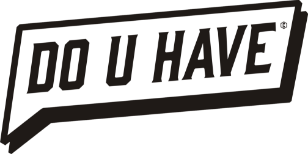What is the best Facebook Marketplace alternative? You might be wondering this for a few different reasons.
Maybe you were scammed recently. Join the club. It’s pretty big at this point.
Or maybe you’ve finally figured out that Facebook Marketplace is really just full of lightly-used furniture from Ikea and old baby clothes. What a drag.
Either way, you’ll be happy to know that there are plenty of Facebook Marketplace alternatives out there — just ready and waiting for you to swipe right on them. But what exactly are the alternatives and when is Facebook Marketplace a good idea?
Let’s break it down.
What are the pros and cons of Facebook Marketplace?
Facebook Marketplace is a handy tool that lets users buy and sell items within their local communities. Since it launched in 2016, Facebook Marketplace has become increasingly popular, with 800 million people using it every month. That being said, Facebook Marketplace isn’t all fairytales and butterflies. Let’s discuss pros and cons.
Pros of Facebook Marketplace:
- You can reach a large number of potential buyers: With over 2 billion monthly active users, Facebook provides a huge potential customer base for sellers.
- It’s free to list items: Unlike some other selling platforms, such as eBay and Etsy, there are no listing fees on Facebook Marketplace.
- You can boost your listings: For a small fee, you can give your listings a boost so that they appear higher up in search results. This can help you to sell items more quickly.
- There are no commission fees: Unlike some other selling platforms (such as Amazon and Offerup), Facebook doesn’t take a cut of sales made through its Marketplace.
- It has easy search features: Finding common items on Facebook Marketplace is incredibly easy. Search functionality is intuitive and you can narrow it down by location and type of seller.
Cons of Facebook Marketplace:
- You may not reach your target audience: Although Facebook has a huge number of users, not all of them will be interested in what you’re selling. On the other hand, if you’re a buyer looking for something more specific, it could be challenging. For example, it’ll probably be pretty difficult (if not impossible) to find a rare, vintage, or antique item. And if you do manage to find one, it’ll likely be out of reach or out of budget.
- Buyers can be flaky: Because there is no obligation to buy on Facebook Marketplace, buyers can easily change their minds or back out of deals. This can be frustrating for sellers who have already arranged to meet up with buyers. On top of this, it may take a while to even find a potential buyer — so if they flake, it can be even more disappointing.
- Scams are common: Unfortunately, there are many scammers who operate on Facebook Marketplace. This means that sellers need to be careful before sending items to buyers or exchanging money for items that haven’t yet been received.
Common scams on Facebook Marketplace
Before making a purchase or selling a valuable item on Facebook Marketplace, it’s important to be aware of the different types of scams that are common on the platform.
One common scam involves sellers offering deeply discounted items that are “too good to be true.” These items are usually counterfeit or stolen, and the seller will quickly disappear once the payment has been made.
Another common scam is when sellers demand payment through methods that are not traceable, such as Western Union or Bitcoin. This makes it impossible to get your money back if you don’t receive the item you were promised.
As another example, some scammers will create fake profiles and listings in order to gain your trust. Once they have it, they’ll ask for personal information or money. And remember — even with a small amount of personal information, it is possible to hack into accounts and social engineer friends or family members into bad situations.
What are the best Facebook Marketplace alternatives?
When it comes to Facebook Marketplace alternatives, there are plenty to go around — but not all marketplaces are created equal. To be smart about your buying and selling journey, make sure you streamline the process and work on making real connections. Here’s where you can start:
Do U Have: Do U Have is a marketplace dedicated to buyers that are in search of a particular item — be it rare, vintage, or everyday. Buyers can post their wanted item and set a budget. Sellers can then visit the marketplace, match with relevant postings, and sell their item without ever posting a thing. With Do U Have, it’s all about connections and demand.
TheRealReal: Facebook is difficult for niches. TheRealReal can help with that. When it comes to luxury items, TheRealReal is doing what it can to validate and make real real connections. However, recently it’s come under some scrutiny — so as always, make sure you do your due diligence before buying or selling any items on any platform.
OfferUp: OfferUp merged with LetGo a few years back and has become a major player in the secondhand marketplace. It allows for conventional connections between buyers and sellers, and it can cast a wide net for your listings. However, it is commission and advertisement based. Because of this, you will be expected to fork over a percentage of your sale, and you’ll have to weed through advertisements along the way.
Mercari: Mercari is a new player in the secondhand marketplace game, and they are hyper-focused on nationwide connections (as opposed to local listings). This means you’ll likely be paying for shipping no matter what (on top of the commission fee the platform itself will charge you). That being said, the platform works well and has a large member base.
Craigslist: Believe it or not, Craigslist still exists, and it’s still a viable option for matching with buyers and sellers locally. If you’re willing to gamble with your life, Craigslist might be the option for you. Just keep 911 on speed dial. And whatever you do, just know that there is not a Nigerian prince in need of your immediate help.
A few quick tips for buying and selling items online
Buying and selling items online can be a great way to save or make money. However, there are a few things to keep in mind in order to have a successful transaction (no matter which marketplace you go with).
For buyers, it’s always important to do your research before making a purchase. Make sure you know the market value of the item you’re interested in and don’t overpay. It’s also important to be aware of scams (like the ones previously listed). Make sure you fully trust the seller, and if you ever meet up in person, take extra precautions to stay safe.
For sellers, it’s important to take quality photos and write accurate descriptions. You should also be clear about your terms of sale, such as whether you accept returns and what form of payment you will take. You’ll also need to remember to follow-up with the buyer right before the scheduled meetup (that way you don’t show up and realize you’ve been ghosted). As a pro tip, let the buyer know you have other buyers in the queue. This way, they’ll feel some sense of urgency and will likely have more communication with you.


